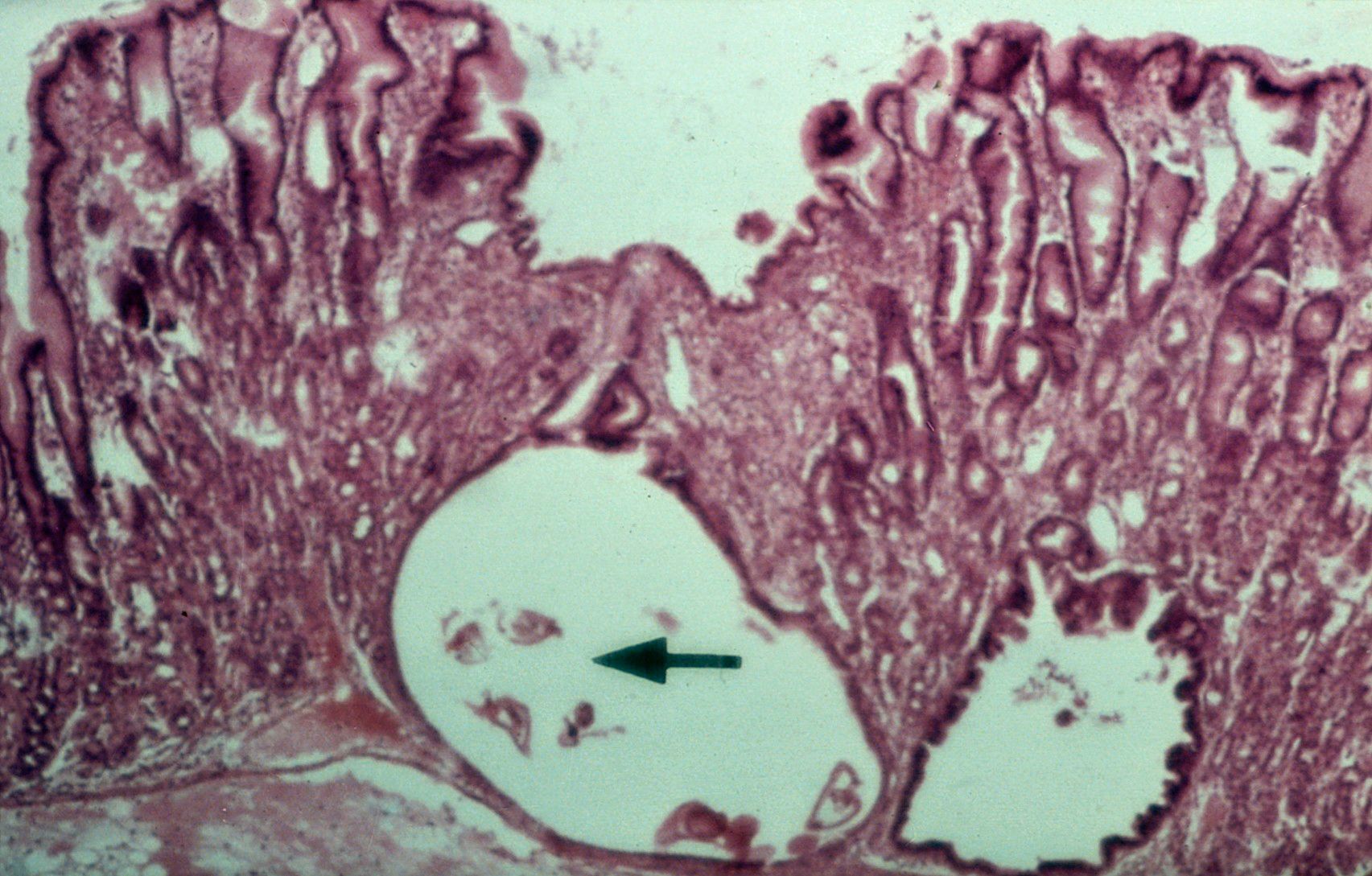
Gastric glands are an integral part of the digestive system, responsible for the production of stomach acid and enzymes that aid in the digestion of food. These incredible glands play a crucial role in breaking down nutrients and ensuring proper absorption in our bodies.
In this article, we will explore 20 extraordinary facts about gastric glands that highlight their importance and shed light on some fascinating aspects of human anatomy. From their structure and function to their role in the development of certain medical conditions, these facts will give you a deeper understanding of the intricate workings of our digestive system.
So, get ready to delve into the world of gastric glands and discover the remarkable secrets they hold!
Key Takeaways:
- Gastric glands in your stomach produce acid and enzymes to break down food, protect your stomach, and help your body absorb important nutrients for staying healthy.
- These tiny glands also help control your appetite, fight off bad bacteria, and adapt to different foods you eat, showing just how amazing your body is at keeping you well.
Gastric Glands: The Powerhouses of Digestion
The gastric glands, found in the lining of the stomach, play a crucial role in the process of digestion. These tiny glands secrete various substances that aid in breaking down food and facilitating nutrient absorption.
Fact: Gastric Glands Produce Hydrochloric Acid
One of the remarkable functions of gastric glands is to produce hydrochloric acid (HCl), which helps in breaking down proteins and killing harmful bacteria that may enter the stomach through food.
Gastric Glands Secretions Include Digestive Enzymes
Gastric glands release enzymes, including pepsinogen, which is converted to pepsin in the presence of hydrochloric acid. Pepsin plays a crucial role in the digestion of proteins.
Unique Fact: Mucus Provides Protection
Gastric glands also produce mucus, which forms a protective layer on the stomach lining. This prevents the acid from damaging the stomach walls and maintaining a healthy environment for digestion.
Gastric Glands and Hormone Secretion
The gastric glands secrete various hormones, such as gastrin, which regulates the secretion of gastric acid and helps in the movement of food through the digestive system.
Fact: Gastric Glands Enhance Nutrient Absorption
The secretions of gastric glands, including hydrochloric acid and enzymes, aid in breaking down food into smaller particles, making it easier for the body to absorb essential nutrients.
Gastric Glands and Digestive Disorders
When there is an imbalance in the production of gastric gland secretions, it can lead to digestive disorders like gastric ulcers, acid reflux, and gastritis.
Interesting Fact: Gastric Glands in Different Stomach Regions
Gastric glands are found in different regions of the stomach, including the cardiac region, fundic region, and pyloric region, each with unique secretion characteristics.
Gastric Glands and the Acidic pH
The presence of gastric acid secreted by the gastric glands contributes to the highly acidic pH of the stomach, which aids in the digestion of food and the prevention of bacterial infections.
Fact: Gastric Glands Can Regenerate
The cells of gastric glands are constantly renewing and can regenerate to maintain proper digestive function.
Gastric Glands and Vitamin B12 Absorption
Intrinsic factor, produced by the gastric glands, is crucial for the absorption of vitamin B12 in the small intestine. Without it, vitamin B12 deficiency can occur.
Fun Fact: Gastric Glands and Appetite Regulation
The gastric glands help regulate appetite through the release of hormones that signal hunger or fullness to the brain, contributing to the overall balance of the digestive system.
Gastric Glands and Defense Mechanisms
The acidic environment created by gastric glands serves as a defense mechanism against ingested pathogens, preventing infections and promoting overall gut health.
Fact: Gastric Glands Produce Bicarbonate
Within the gastric glands, bicarbonate is produced to neutralize excess stomach acid, maintaining the optimal pH level for digestion.
Gastric Glands and Gastric Motility
Through the secretion of digestive enzymes and hormones, gastric glands play a role in regulating the movement of food through the stomach, known as gastric motility.
Unique Fact: Gastric Glands and Gastric Juice
The collective secretions of the gastric glands, including acid, enzymes, and mucus, are known as gastric juice, which aids in the breakdown of food during digestion.
Gastric Glands and Gastric Emptying
The secretions of gastric glands influence the rate at which food leaves the stomach, known as gastric emptying, with the overall goal of optimizing the digestive process.
Fact: Gastric Glands Adapt to Dietary Changes
The composition and secretion of gastric glands can adapt to changes in the diet to ensure efficient digestion of different types of food, maintaining overall digestive health.
Gastric Glands and Acid-Base Balance
By regulating the pH level in the stomach, the gastric glands contribute to maintaining the acid-base balance within the body, essential for numerous physiological processes.
Fascinating Fact: Gastric Glands in Animal Digestion
Gastric glands are not unique to humans. They can be found in various animals, playing a vital role in their digestion and nutrient absorption.
The 20 extraordinary facts about gastric glands shed light on their significance in the digestive process, ranging from acid secretion to hormone regulation and protection from pathogens. Understanding the functions and characteristics of gastric glands aids in comprehending the complex workings of the human body and the remarkable mechanisms involved in digestion.
Conclusion
In conclusion, gastric glands are a crucial component of the digestive system, responsible for secreting important fluids and enzymes that aid in the process of digestion. These tiny glands play a significant role in breaking down food and extracting necessary nutrients for the body’s overall function and well-being. From producing gastric juice to regulating stomach acid levels, gastric glands ensure that the digestive system operates efficiently.
Understanding the extraordinary facts about gastric glands not only expands our knowledge of human anatomy but also highlights the intricate mechanisms at play within our bodies. From their distribution throughout the stomach lining to their diverse cell types, gastric glands exemplify the complexity and brilliance of the human body.
Exploring these fascinating facts allows us to appreciate the marvels of human anatomy and fosters a deeper understanding of how our bodies work. The intricate workings of gastric glands serve as a reminder of the incredible design and functionality of the human body.
FAQs
1. What are gastric glands?
Gastric glands are small glands located in the stomach lining that secrete various substances to aid in digestion, including gastric juice.
2. What is the role of gastric glands in digestion?
Gastric glands produce gastric juice, which contains enzymes and hydrochloric acid that help break down food and kill harmful microorganisms in the stomach.
3. How many types of cells are present in gastric glands?
Gastric glands consist of three main cell types: mucous cells, parietal cells, and chief cells, each with its specific function in digestion.
4. Where are gastric glands located in the stomach?
Gastric glands are present in the stomach lining, particularly in the mucosa of the body and fundus regions of the stomach.
5. Can gastric glands be affected by diseases?
Yes, several diseases and conditions can affect the normal functioning of gastric glands, including gastritis, gastric ulcers, and gastric cancer.
6. Are gastric glands involved in hormone production?
Yes, apart from secreting digestive enzymes and hydrochloric acid, certain cells in gastric glands, known as enteroendocrine cells, produce hormones that regulate various digestive processes.
Gastric glands play a vital role in digestion, but they're just one part of the incredible digestive system. Parietal cells, found within gastric glands, secrete hydrochloric acid and intrinsic factor, making them essential for proper digestion. Parietal cells work alongside chief cells, which produce pepsinogen, a key enzyme in protein breakdown. Chief cells and their secretions are crucial for the stomach's digestive functions. Explore more fascinating aspects of the digestive system and its components to gain a deeper understanding of how our bodies process the food we eat.
Was this page helpful?
Our commitment to delivering trustworthy and engaging content is at the heart of what we do. Each fact on our site is contributed by real users like you, bringing a wealth of diverse insights and information. To ensure the highest standards of accuracy and reliability, our dedicated editors meticulously review each submission. This process guarantees that the facts we share are not only fascinating but also credible. Trust in our commitment to quality and authenticity as you explore and learn with us.


